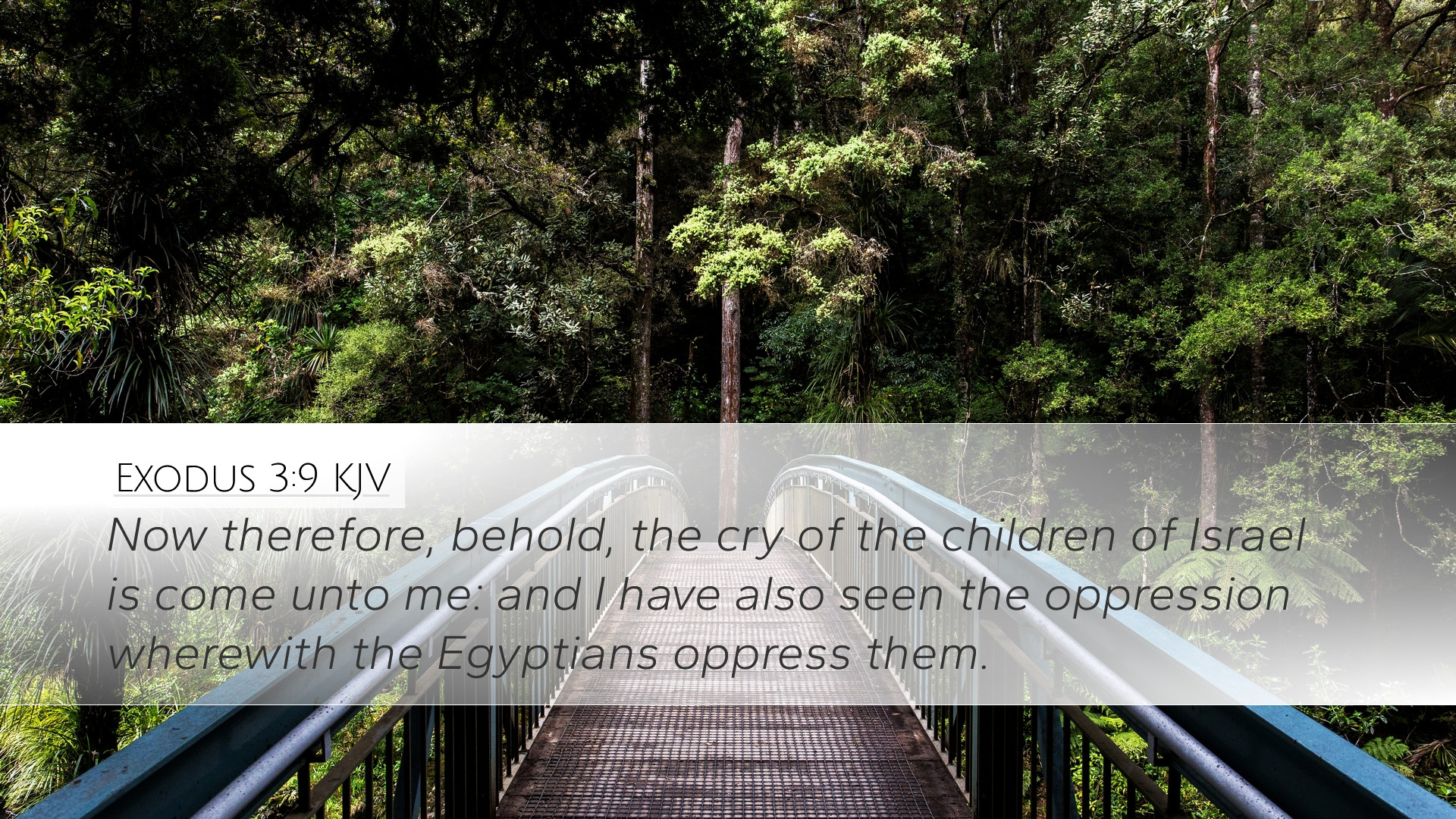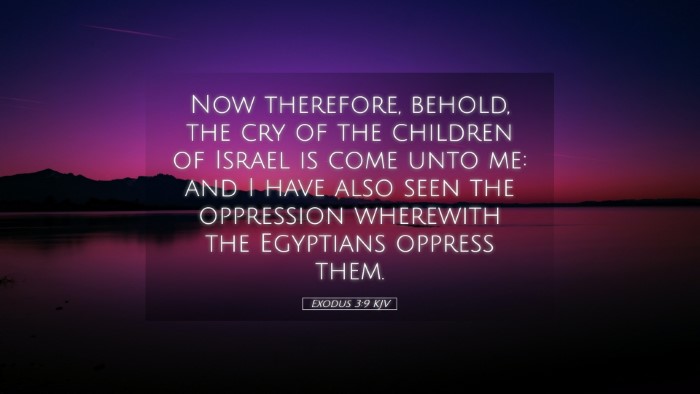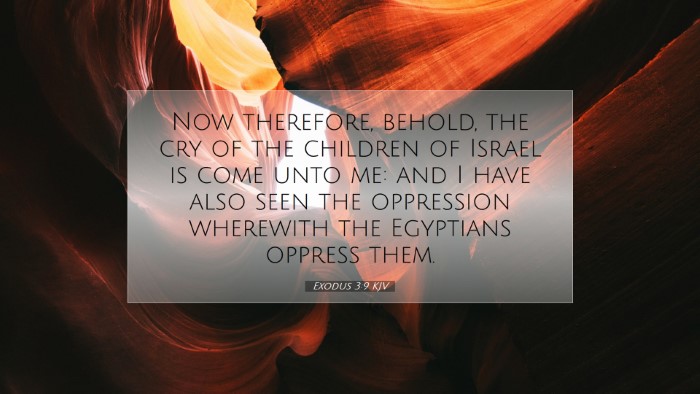Commentary on Exodus 3:9
Verse: "And now, behold, the cry of the children of Israel is come unto me: and I have also seen the oppression wherewith the Egyptians oppress them." (Exodus 3:9, KJV)
Introduction
This verse is a pivotal moment in the narrative of Exodus, as it marks the divine recognition of Israel's plight. In this commentary, we will explore the insights from respected public domain commentaries, drawing particularly from the works of Matthew Henry, Albert Barnes, and Adam Clarke. These insights will focus on the theme of divine providence and the responsiveness of God to human suffering.
Contextual Background
The Book of Exodus recounts the story of God’s deliverance of Israel from slavery in Egypt. At this juncture, Moses is confronted by God in the burning bush, and the plight of the Israelites is laid bare. It is crucial to understand that this verse is not just a proclamation of God’s awareness but also an affirmation of His active engagement in the affairs of His people.
The Significance of the Cry
According to Adam Clarke, the "cry" of the children of Israel is twofold: it represents both a physical and a spiritual outcry. The children of Israel are in a desperate situation, and their cries reach the ears of God. Clarke emphasizes that God is not distant or uninvolved, but rather He listens attentively to the suffering of His people.
Divine Observance of Oppression
Matthew Henry notes that God’s observation is key in this verse: "I have also seen the oppression." This phrase reinforces the idea that God is aware of injustice and suffering. Henry points out that God’s knowledge is not passive; it is coupled with compassion and the intention to act. The oppression faced by the Israelites is a reminder that God is a God of justice, who does not overlook the afflictions of the oppressed.
Theological Implications
This verse opens up several theological reflections relevant to pastors, students, theologians, and Bible scholars.
1. God's Empathy and Engagement
Albert Barnes emphasizes God's empathetic nature, suggesting that His response to the cries of the oppressed reflects His character as a caring shepherd. This engagement signifies the relational aspect of God – He feels the pain of His people and takes action. For contemporary believers, this establishes a profound theology of comfort that assures them of God's presence in their suffering.
2. The Role of Human Cry in Divine Action
Henry also explores the role of human agency through their cry. The act of crying out is not merely a response to suffering but an acknowledgment of dependence on God. He notes that God delights to hear the prayers of His people and that often, their cries incite divine intervention. This calls into question the importance of prayer and supplication in the life of faith.
3. A Call to Justice
Furthermore, this passage challenges believers to be advocates for justice in their own contexts. The oppression the Israelites faced is a stark reminder of the injustices that persist today. Barnes calls the church to action, urging believers to respond to the cries of the oppressed in all forms, reflecting God’s own heart for justice.
Practical Applications
Understanding Exodus 3:9 can lead to profound practical applications for life and ministry.
- Emphasizing Prayer: Like the Israelites, believers today are encouraged to cry out to God in times of distress. Pastoral care must prioritize prayer as a means of engaging with God's responsiveness.
- Awareness of Injustice: Leaders in the church are called to cultivate an awareness of societal injustices, following God’s example of seeing and hearing the oppressed.
- Encouraging Action: Response to the knowledge of suffering must include tangible actions. Whether through charity, advocacy, or community support, believers must strive to alleviate suffering in practical ways.
Conclusion
Exodus 3:9 serves as a profound reminder of God's attentiveness to human suffering and His unyielding commitment to justice. Geared towards pastors, students, theologians, and scholars, this commentary combines insights from Matthew Henry, Albert Barnes, and Adam Clarke to inspire a deeper understanding of God’s nature and His call for His people to respond faithfully to the cries of the oppressed.
As we reflect on this verse, let us be reminded of the urgency to communicate God's compassion in our ministries and lives. The cries of those in need should compel us into action, echoing the faithfulness of God who hears and rescues.


